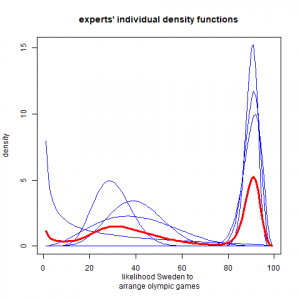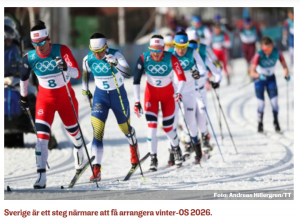This is a 3 hour tutorial where I (Ullrika Sahlin) talk about why quantification of epistemic uncertainty by probability is important and useful to master. I present two methods – Expert Knowledge Eliciation and Bayesian Analysis.
We will go through hands on examples on quantifying uncertainty in assessment inputs as well as in assessment output.
All examples will be done using code from the open source program R using the participants own laptops. It is possible to just sit in and interact without running the code.
The purpose of the tutorial is to spark interest in using probability as a measure of epistemic uncertainty. Instead of going through the maths behind it, I will walk you through hands on examples which demonstrate that it is not difficult to do Bayesian analysis in practise. We use the SHELF R-package for EKE and rjags and JAGS for MCMC sampling.
This tutorial was given in Lund 10th of October 2018
I will give it in Stavanger on November 7th between 16 – 19 in Kjølv Egelands hus, Room D301 . The tutorial is part of a conference in risk https://www.uis.no/research-and-phd-studies/research-centres/seros-centre-for-risk-management-and-societal-safety/risk2018/ Contact me if you are interested in attending the tutorial ullrika.sahlin [at] cec.lu.se or sign up for it when you register to the Conference.
The material for the tutorial is available at GitHub. Note – work in progress.
https://github.com/Ullrika/quantifying_uncertainty_by_probability




